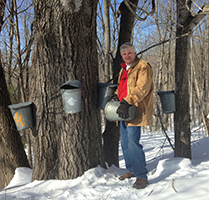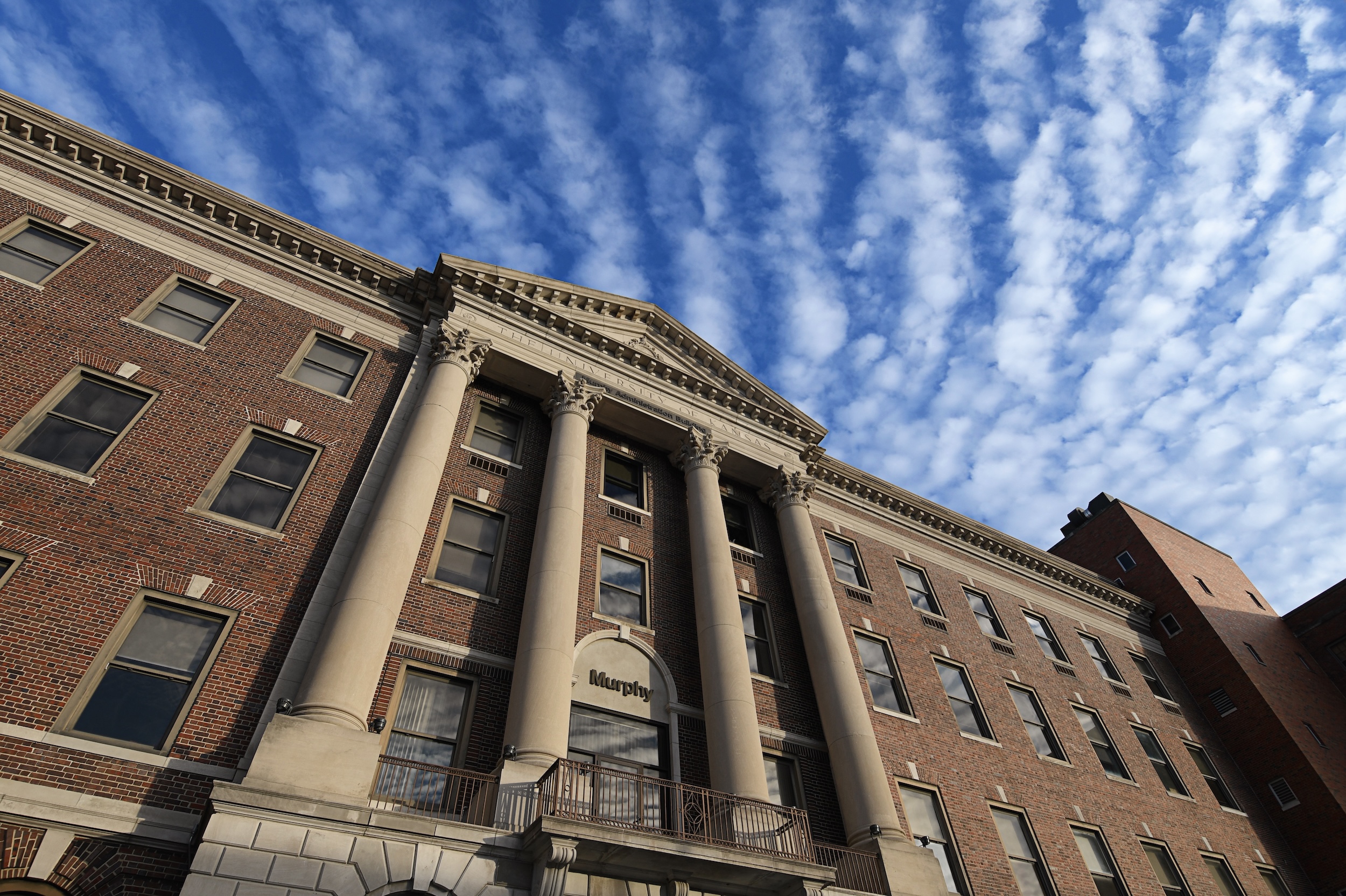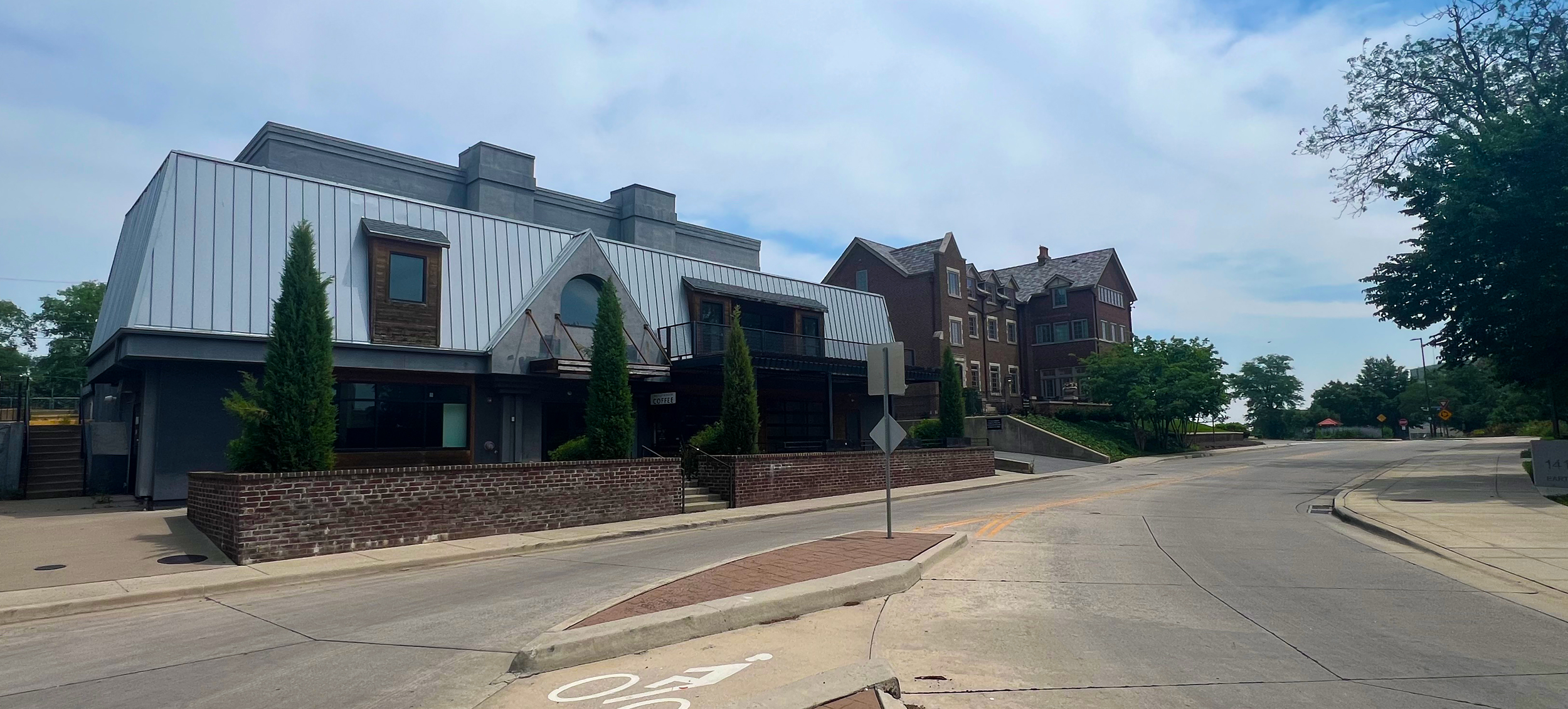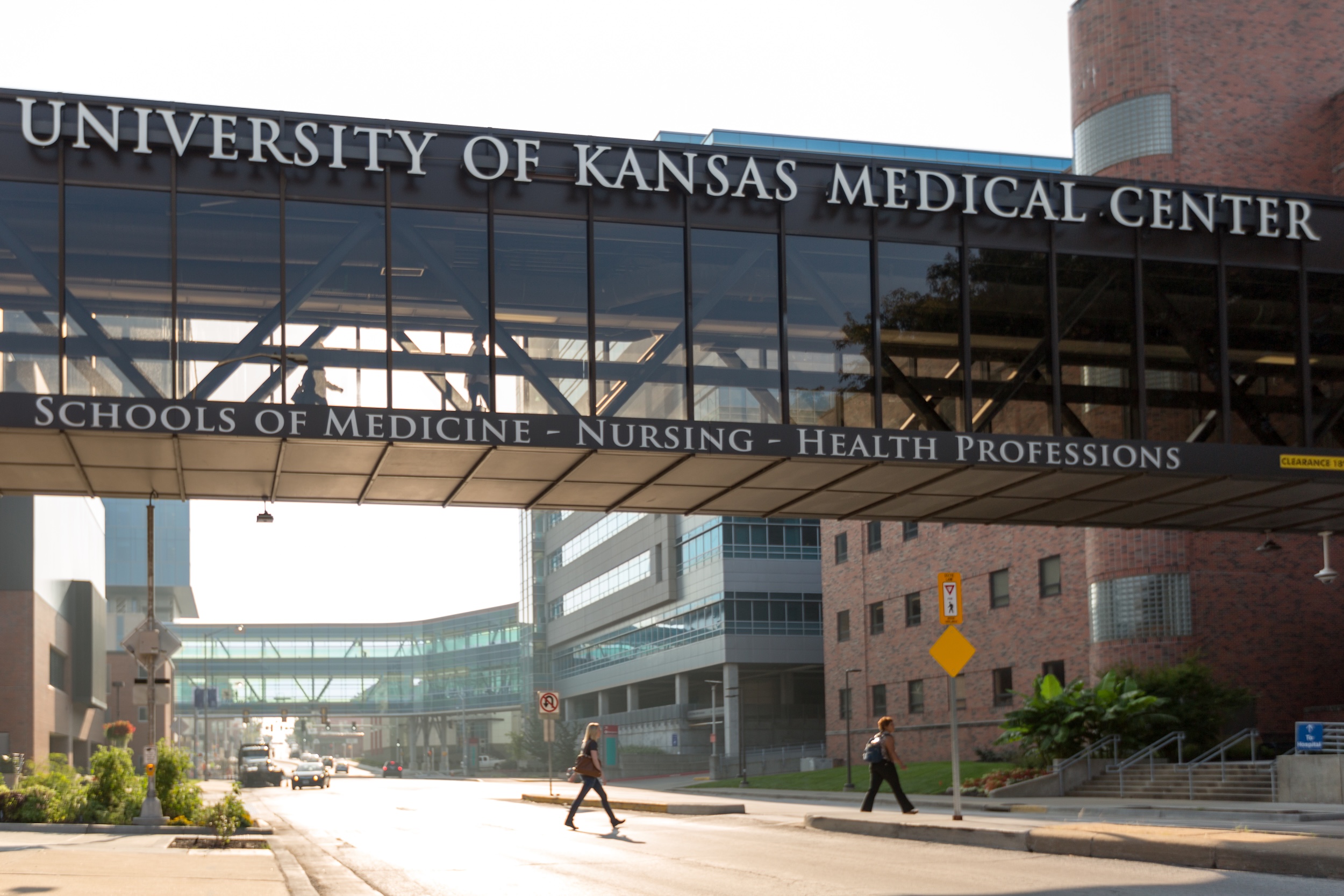KU Giving Magazine
Estate plans to benefit disabled students at KU
Pete Woodward
On a winter morning, you’re likely to find The Rev. Brinton W. “Pete” Woodward Jr. maple sugaring at his home on Squam Lake in Holderness, New Hampshire. Freshly fallen snow muffles his steps as he hangs empty buckets beneath the taps, carrying the full buckets to a holding tank, where he’ll later boil the sap over a propane burner. Trees on this one-acre homestead produce about 660 gallons of sap each year.

As it takes 40 gallons of sap to make one gallon of maple syrup, that comes out to about 16 gallons of syrup — all from the generous trees that shade his house in the summer and blaze with colors in the fall.
As steeped as he is in New Hampshire traditions, having lived on the East Coast since 1977, Woodward values his family’s historic ties to Kansas and the University of Kansas. He recently created estate plans to benefit disabled students at KU, in particular, students who are vision-impaired.
“The purpose of my planned estate gift is two-fold,” said Woodward. “It reinforces my commitment to broad access to education and support for those who need special tools to succeed. And it brings full circle my family’s commitment to the University of Kansas from the beginning of Lawrence and the advent of the University.”
A standout KU basketball and tennis player in the late 1950s and early 1960s, the Topeka native graduated from KU in 1962 with a bachelor’s degree in history and the humanities. Woodward is a third-generation Jayhawk: his grandparents and parents attended KU. His wife, Kathy (Kathleen Crothers), also graduated from KU, earning a bachelor’s degree in English in 1965.
While attending KU, Woodward’s extracurricular activities deepened his growing interest in the ministry. Active in the Canterbury House Episcopal Campus Ministry group, he also taught Sunday school at Trinity Episcopal Church. Additionally, he followed KU basketball Coach Dick Harp’s advice and participated in the Fellowship of Christian Athletes.
While he considered taking over his father’s Topeka insurance agency, he was more interested in a career in the ministry, which he hoped to blend with his love of coaching and teaching.
In 1967, two years after earning a master’s of divinity at General Theological Seminary in New York, he found a way to fulfill his dream. He was hired as chaplain, teacher and coach at Kent School in Kent, Connecticut. Ten years later, he became headmaster for the Holderness School, also an Episcopal Church school, in Plymouth, New Hampshire, a position he held until retiring three decades later.
In retirement, Woodward volunteers as a Court Appointed Special Advocate for youths, and he volunteers for nonprofits. In the winter of course there’s maple sugaring, and in the summer, he gardens and cans fresh fruit and vegetables — making apple tomato chutney, and strawberry and blueberry jams. When there’s time, he golfs.
“I take retirement to mean non-income, but I’m just as active as I was at any time in my life, primarily with CASA and other non-profit work,” said Woodward.
Woodward is the father of two grown sons, Brinton and Peter. Brinton has been blind since birth and is developmentally delayed with autism. At 43, Brinton gets along fine with family support and social services, and he has a job working in a used bookstore.
Woodward’s family ties to Kansas go back to Territorial days. His great-grandfather, Brinton Webb Woodward (pictured above), moved from Pennsylvania to Kansas, arriving in Lawrence in 1855. Here, he established what would be the state’s first drug store — Round Corner Drug. In 1863, he survived Quantrill’s Raid.
Woodward’s business prospered, and in 1890, he purchased a Fourteenth Street estate on the east slope of Mount Oread. In addition to his drug store, he sat on the Board of Regents and was one of the organizers of the St. Louis, Lawrence and Denver railroad. He reportedly owned the “finest private art gallery in Kansas,” and housed it in a specially designed sky-lighted room in his home.
Later, in the early 1900s, this residence served as a fraternity house. In 1939, the university purchased the property to designate it as KU’s first scholarship hall for men, naming it Templin Hall. The building was razed in 1959.
Share this article



